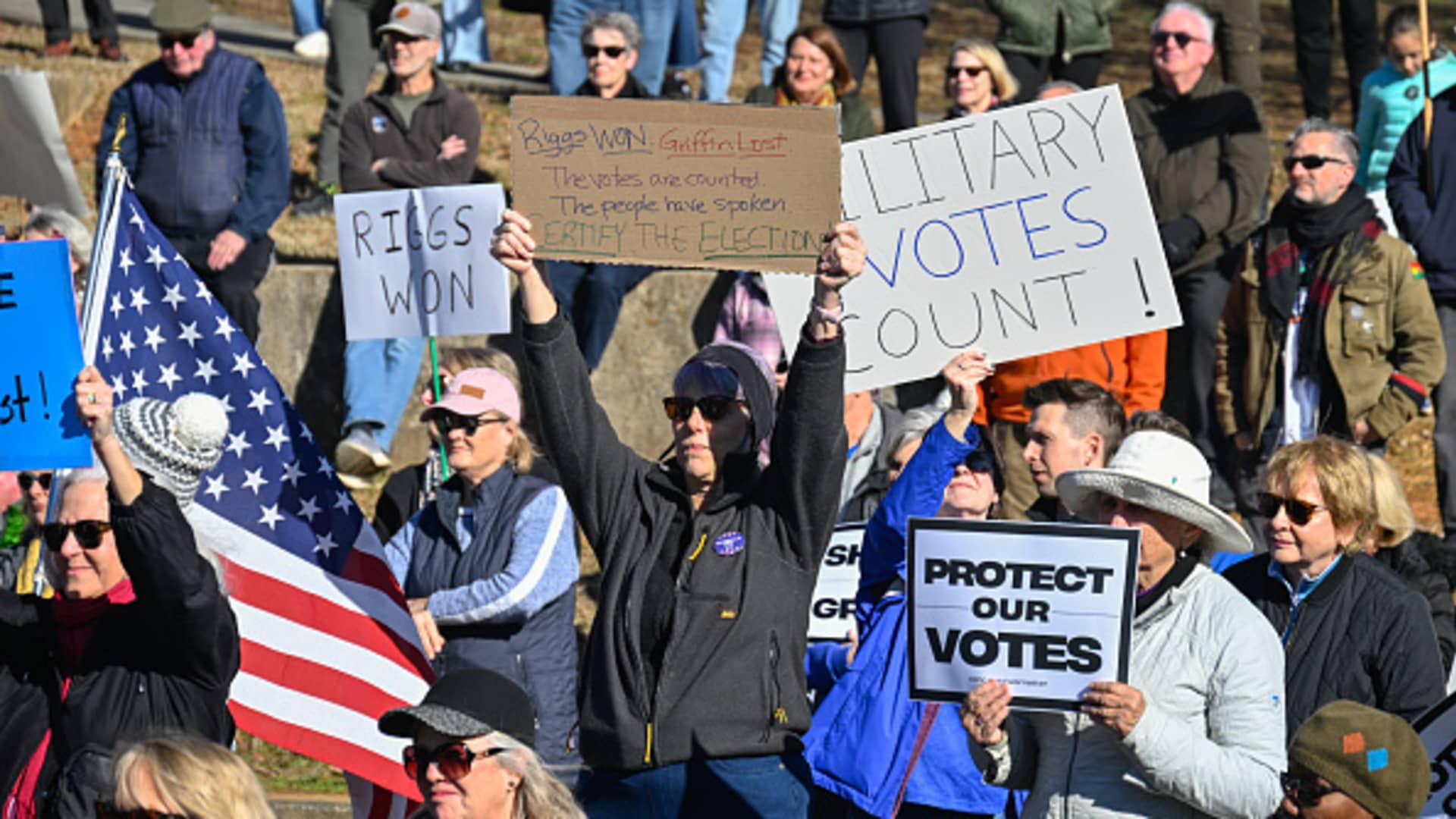“`markdown
Introduction
The 2024 North Carolina Supreme Court race has emerged as a microcosm of the broader tensions between legal integrity and political maneuvering in modern elections. With over 5.5 million ballots cast, the razor-thin margin between Democratic incumbent Allison Riggs and Republican challenger Jefferson Griffin has thrust the state into a prolonged legal and political drama. This analysis unpacks the key developments, dissects the legal arguments, and explores the far-reaching implications of a race that could redefine North Carolina’s judicial future.
The Legal Battleground
Initial Disputes and the Federal Judge’s Ruling
At the heart of the conflict lies the validity of contested ballots. Riggs’s camp argued that discarding these ballots would disenfranchise voters, violating the U.S. Constitution’s Equal Protection Clause. U.S. District Judge Richard Myers agreed, ruling that the disputed ballots must be counted—a decision that tilted the scales in Riggs’s favor. His reasoning hinged on precedent-setting cases like *Bush v. Gore* (2000), emphasizing the need for uniform standards in ballot evaluation.
Critics, however, contended that the ruling overlooked procedural irregularities. Griffin’s team alleged that some ballots lacked proper verification, potentially compromising election integrity. This tension between voter access and procedural rigor has become a recurring theme in post-2020 election disputes.
Certification Order and the Window for Appeal
Judge Myers’s subsequent order directing the State Board of Elections to certify Riggs as the winner was a watershed moment. By rejecting Griffin’s ballot challenges, the judge effectively endorsed the principle that technicalities should not override voter intent. However, the one-week stay placed on the certification allowed Griffin to appeal, prolonging the uncertainty.
Legal experts note that such stays are double-edged swords: while they preserve due process, they also risk eroding public confidence by delaying finality. The appeal process now shifts focus to higher courts, where interpretations of state election laws could further complicate the outcome.
The Court of Appeals’ Recount Order
In a twist, a three-judge panel from the North Carolina Court of Appeals mandated a recount of 65,000 votes, citing “potential discrepancies” in voter records. This decision underscored the judiciary’s role as a referee in electoral disputes. The recount, while time-consuming, serves two purposes: it addresses Griffin’s claims of irregularities and reaffirms the transparency of the process. Yet, it also fuels partisan skepticism, with Riggs’s supporters viewing it as a stalling tactic.
Political Implications
Shifting the Balance of the Supreme Court
North Carolina’s Supreme Court has long been a partisan battleground, with rulings on gerrymandering, education funding, and voting rights often splitting along ideological lines. A Riggs victory would maintain a 4-3 Democratic majority, likely preserving the court’s progressive lean on issues like redistricting and environmental regulations. Conversely, a Griffin win could tilt the court rightward, impacting future rulings on abortion restrictions and election laws.
Public Trust and Electoral Transparency
The protracted dispute has amplified concerns about electoral legitimacy. Polls indicate that 40% of North Carolinians now question the fairness of the process—a troubling statistic in a state already polarized by recent voting reforms. The race’s outcome could either restore faith in judicial oversight or deepen divisions, depending on how courts balance expediency with thoroughness.
Conclusion
A Defining Moment for Judicial Elections
The North Carolina Supreme Court race is more than a partisan skirmish; it’s a stress test for the state’s electoral and legal systems. Judge Myers’s rulings and the Court of Appeals’ recount order reflect the delicate interplay between law and politics. As appeals unfold, the stakes extend beyond Riggs or Griffin: the precedent set here will influence how future close elections are adjudicated.
Ultimately, this saga underscores a universal truth—elections are not just about winners and losers, but about the mechanisms that uphold democracy. North Carolina’s resolution of this conflict will either reinforce public confidence or expose vulnerabilities in its electoral framework. The nation watches, waiting to see if the state’s judiciary can rise above the fray to deliver a verdict that is both legally sound and politically credible.
“`











